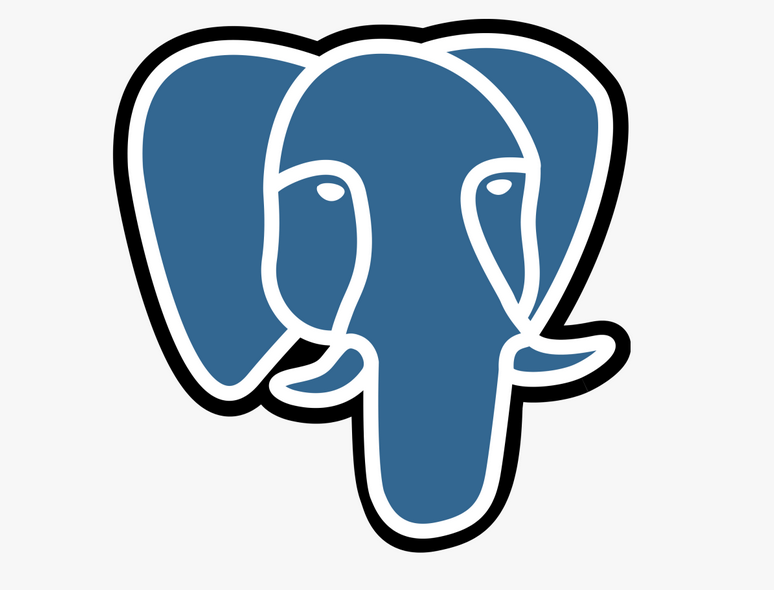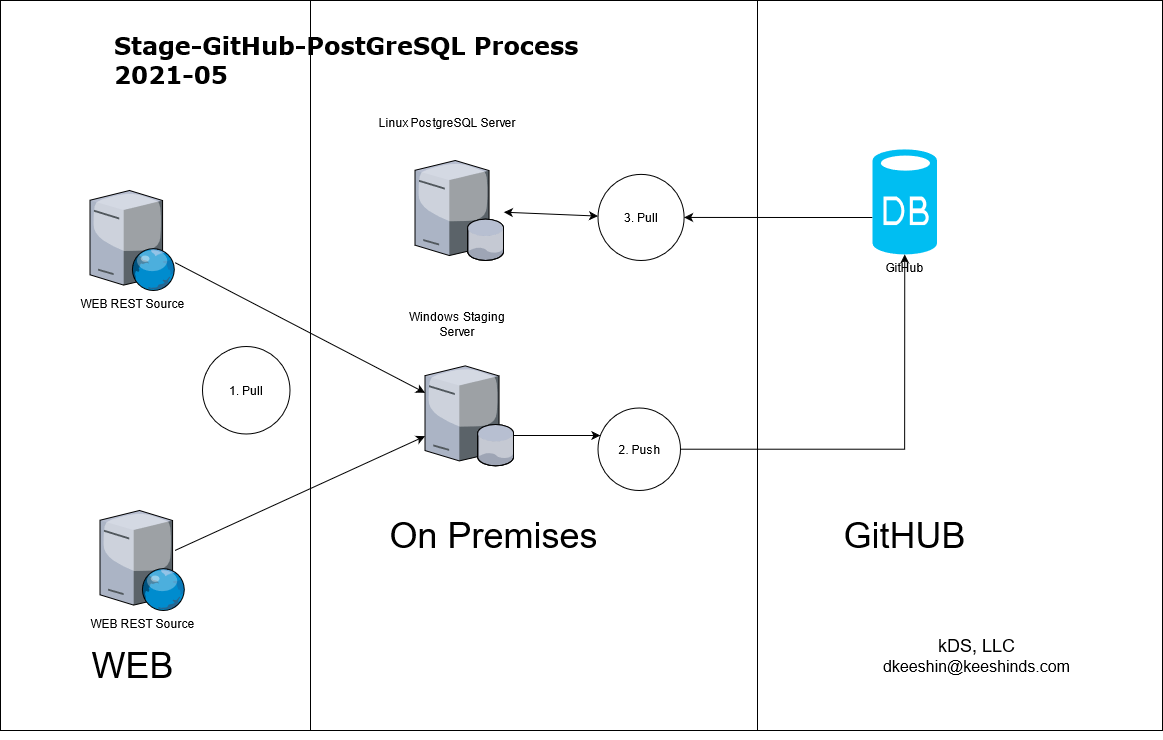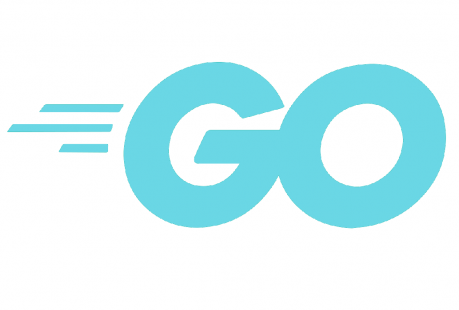Open to Open Source?

Recently I took a detailed look at open source solutions PostgreSQL and GO (the programming language) running on the Linux operating system.
Here are my thoughts:

Linux
For years, we have heard the Linux vs Windows debate.
Windows has been the winner on the corporate desktop for a long time. Open source advantages could now change that.
When Windows was released in the mid-1990s it was a response to users who said the Apple-MacIntosh graphical user interface (GUI) was easier to use. It was. At the time, UNIX was the only alternative to either but did not have a GUI. I should note the MAC OS and LINUX both have ties to UNIX.
A lot has happened since then. Now, most, if not all, popular operating systems like Linux have GUIs. I use Linux Mint and often find its' simpler design easier to navigate than recent versions of Windows.
With servers, it gets more complicated. Especially when you factor on premises VMs or bare-metal servers versus cloud PAAS or IAAS approaches. Regardless, the open-source advantages still apply.
Newer versions of Windows has to run on newer hardware. That's good news for hardware vendors. Bad news for the environment. Linux easily runs on older hardware extending its’ life. This is an environmentally friendly reason to use it since "e-waste" is now a growing issue. In 2019 there was 53.6 million metric tons of e-waste. Experts say it is going to get worse.
Many people say open source software like Linux provides superior security and better quality. It is more flexible and easier to customize. It adheres better to open standards. It avoids vendor lock in, expensive licensing fees and complicated licensing schemes.
I agree.Above all, it is FREE and available to anyone.

PostgreSQL
According to the folks at postgresql.org :
“PostgreSQL is a powerful, open source object-relational database system that uses and extends the SQL language combined with many features that safely store and scale the most complicated data workloads. The origins of PostgreSQL date back to 1986 as part of the POSTGRES project at the University of California at Berkeley and has more than 30 years of active development on the core platform.
PostgreSQL has earned a strong reputation for its proven architecture, reliability, data integrity, robust feature set, extensibility, and the dedication of the open source community behind the software to consistently deliver performant and innovative solutions. PostgreSQL runs on all major operating systems, has been ACID-compliant since 2001..”
I took PostgreSQL for a test drive using the COVID19 data vault management solution I described in my June 2020 blog. In June 2020, I was publishing data to an Azure SQL Database. Now I wanted to publish data to a PostgreSQL database.
Please refer to the diagram below to see my approach.
Starting from my Windows server at step (1) I use Powershell to "pull" data to a staging area for some basic data cleansing. Next (2), I "push" CSV and JSON data to my GitHub site. Note: I am publishing the data to the GitHub site to satisfy a recent request to provide easy access to "live" daily and historical CSV and JSON data. This data is now live, available, and updated nightly. See my description on GitHub for details.

In step (3) I use a Linux Bash shell script to "pull" daily changes from GitHub and load them to my PostgreSQL database. I am using the most current version, PostgreSQL 13.
Once I was able to navigate through typical installation and configuration issues like port numbers and fire wall settings, PostgreSQL worked great and continues to. It is an easy database to work with. If you have a lot of SQL Server T-SQL experience like I do, psql the equivalent in PostgreSQL is easy to pick up.
If you want to see how it ranks with other databases check out db-engines.com, a popular site for commercial and open source database rankings.

GO
According to Wikipedia:
"GO [or GOLANG as it is often called] was designed at Google in 2007 to improve programming productivity in an era of multi-core, networked machines and large code bases. The designers wanted to address criticism of other languages in use at Google, but keep their useful characteristics:
- Static typing and run-time efficiency (like C).
- Readability and usability (like Python or JavaScript),
- High-performance networking and multiprocessing"
If you have experience with C or C# like I do, GO is easy to learn. Its quick and now has a large following. It is rapidly becoming a popular language among blockchain developers. Here is an interesting interview that talks about that.
All of this piqued my interest in blockchain since a blockchain is really a distributed or more accurately a replicated database concept. A concept that I have worked with in the past. That said, I decided to take the plunge and learn GO.
Looking Forward
Hopefully you have seen the advantages of working with open source solutions like Linux, PostgreSQL and GO. I have. I am sold.
This came about when a colleague of mine and I were discussing the challenges of building a network of replicated databases. I started looking at the tools you could use to do that.
By the way, one thing I forgot to mention. The API. I would add gRPC to the mix. I have blogged about that in past.
That being said, PostgreSQL, GO, gRPC on Linux would provide a solid foundation for building a network of replicated databases.
It looks like that could be the future.
More about that soon.
Thanks for visiting.
Leave a Comment:
Here are some useful categories to links that will help decipher some of the mysteries of SQL Server and other data technologies
Azure
- AMQP Video
- Azure Pricing Calculator - Estimate your bill
- Azure Service Bus Messaging Deep-Dive Video
- Azure Service Bus—Cloud Messaging Service
- Everything You Need to Know About Azure Service Bus Brokered Messaging (Part 1)
- Google Bigquery
- Hidden Costs in the Cloud, Part 2: Windows Azure Bandwidth Charges
- Introducing Windows Azure Service Bus for Visual Studio Developers Video
- Messaging in Azure: Event Hubs, Service Bus, and Relay Video
- Redshift
- SQL Database – Cloud Database as a Service
- SQL Data Warehouse
- SQL (PaaS) Database vs. SQL Server in the cloud on VMs (IaaS)
- SQL Server virtualization – Azure SQL Server VM
- Stream Analytics - Real-time data analytics
- Azure Pricing Calculator - Estimate your bill
Backup And Restore
- Backup and Recovery in Configuration Manager
- Centralized management: Tips for Managing Backups on Multiple Servers
- How to backup SQL Server databases to Microsoft Azure
- How to increase SQL 2008 R2 Backup throughput
- How To Restore the Master Database in SQL 2012
- Filegroup Backup and Restore in SQL Server
- Purging MSDB Backup and Restore History from SQL Server
- Retore SQL Server database to different filenames and locations tutorial and example
- SQL SERVER – FIX : Error 3154: The backup set holds a backup of a database other than the existing...
- SQL Server 2014 Backup Basics
- SQL Server Backup
- SQL Server BACKUP DATABASE command tutorial and example
- SQL Server Backup Encryption
- SQL Server: Understanding Logging and Recovery in SQL Server
- Understanding SQL Server Log Sequence Numbers for Backups
- Using Transparent Data Encryption
- Veeam Backup Tool
- Centralized management: Tips for Managing Backups on Multiple Servers
Clustering and High Availability
- AlwaysOn Availability Groups: Step by Step Setup
- An Introduction to SQL Server Clusters with Diagrams
- Configure SQL Server AlwaysOn Availability Group on a Multi-Subnet Cluster
- DBA 173-Patching Or Updating AlwaysOn Availability group Replicas in SQL Server Best Practices Video
- How to Install a Clustered SQL Server 2012 Instance – Part 2
- How to Patch a SQL Server Failover Cluster
- How to Set Up SQL Server Denali Availability Group
- Lync 2013 and Database Mirroring and a little basic troubleshooting
- Migrating MS SQL Cluster to New Shared Storage
- Monitor SQL Server AlwaysOn Availability Groups
- Powershell Scripting: Installing SQL / Setting up AlwaysOn Availability Groups
- So, You Think You Want SQL AlwaysOn Availability Groups?
- SQL 2012 Failover Cluster Build (Step by Step) – Part 1: Installing SQL 2012
- SQL Server DBA Tutorial 26-How to Install Service Packs,Hot Fixes and Windows Patches in Cluster Video
- SQL Server Disaster Recovery VS. High Availability (Update)
- SQL Server failover cluster rolling patch and service pack process
- SQL Server Failover Clusters
- Stack Overflow Architecture - High Scalability -
- Tiered Support Model for Database Monitoring & Delivery
- Windows Server 2012: Building a Two-Node Failover Cluster
- An Introduction to SQL Server Clusters with Diagrams
Deploy
- Automating SQL Server Database Deployments: Scripting Details
- Automating SQL Server Database Deployments: A Worked Example
- Deploy a Data Tier Application
- SSIS Deployment with PowerShell: Adding Environment References
- Automating SQL Server Database Deployments: A Worked Example
Design
- Relational Database Design
- Relational Database Concepts
- Five Simple Database Design Errors You Should Avoid
- Important Database Design Rules
- Ten Common Database Design Mistakes
- Tips for Better Database Design
- Kimball Dimensional Modeling
- Kimball-Inmon Dimensional Modeling Comparison
- Data Lake Design
- Enterprise Data Lake Design
- Web Sequence Diagram
- Datanamic Dezign Tool
- Building a Rule Engine with SQL Server
- Code Effects: .NET Business Rules Engine
- Relational Database Concepts
ftp
- CrushFTP - Enterprise Grade File Transfer for Everyone
- Filezilla
- WatchFTP - Monitor an FTP Site for New and Changed Files
- Filezilla
Install
- How to install SQL Server 2008 32Bit on Windows 2008 X64
- 12 Essential Steps After Installing SQL Server
- How to install SQL Server 2014
- How to install NetFx3 on Windows Server 2012 (required by SQL Server 2012
- How to configure SQL Server to listen on a specific port
- Error when using MS SQL Server "Named Pipes Provider: Could not open a connection to SQL Server"
- SQL Server Installation Using Powershell
- 12 Essential Steps After Installing SQL Server
Licensing
- SQL Server 2017 Pricing and License Guides
- Microsoft Licensing Simplified Into Seven Rules
- Introduction to SQL Server Licensing
- Microsoft Licensing Simplified Into Seven Rules
Maintenance and Monitoring
- Automate and Improve Your Database Maintenance Using Ola Hallengren's Free Script
- Clear Cache and Buffer of Stored Procedure in SQL Server
- Dealing with high severity errors in SQL Server
- Different Status of a SPID in SQL Server and What do they mean
- Eight Steps to Effective SQL Server Monitoring
- Great SQL Server Debates: Buffer Cache Hit Ratio
- How to Install Service Packs,Hot Fixes and Windows Patches in Cluster Video
- How to Run ChkDsk and Defrag on Cluster Shared Volumes in Windows Server 2012 R2
- How to shrink the tempdb database in SQL Server
- Lock Pages in Memory in SQL Server on VMware – Why or Why Not
- MaxTokenSize and Windows 8 and Windows Server 2012
- Memory Manager surface area changes in SQL Server 2012
- Reduce Time for SQL Server Index Rebuilds and Update Statistics
- Registering SQL Server instances for easier management
- SQL Server 2012 Auto Identity Column Value Jump Issue
- SQL Server Backup, Integrity Check, Index and Statistics Maintenance
- SQL Server Deadlocks by Example
- SQL Server Monitoring with SolarWinds Server and Application Monitor
- SQLDBA: WmiPrvSE.exe blocking SQL Server 2008 R2 SP1 setup
- Tips for Rebuilding Indexes - SQL Server Performance
- Top Tips for Effective SQL Server Database Maintenance
- We couldn't complete the updates, Undoing changes
- Windows Update Database Corruption
- What does a well maintained Team Foundation Server look like?
- Why you should not shrink your data files
- Clear Cache and Buffer of Stored Procedure in SQL Server
Migrate
- A Faster Way to Migrate SQL Server Instances!
- Download Microsoft SQL Server 2008 Upgrade Advisor from Official Microsoft Download Center
- Getting Started with dbatools
- How to migrate SQL Server from one machine to another
- How to Move Master Database to a New Location in SQL Cluster
- How to move the Master database
- How to Upgrade to SQL Server 2008 from SQL Server 2000
- How-To: Migrate MS SQL Cluster to a New SAN
- Migration SQL Server 2000 to SQL Server 2008
- Moving Databases on a SQL Server Cluster 2008 R2 to A New SAN
- SQL Server Database Migration Checklist
- Steps to Migrate from SQL Server 2000 to SQL Server 2014
- sys.sysprotects (Transact-SQL)
- Upgrading To SQL 2012: Ten Things You Don't Want To Miss
- What to Consider When Creating SQL Server Database Migration Plan
- Download Microsoft SQL Server 2008 Upgrade Advisor from Official Microsoft Download Center
Optimize
- A Sysadmin's Guide to Microsoft SQL Server Memory
- Building Microsoft MEAP: Scaling Out SQL Server
- Did You Give SQL Server 2012 Standard Edition Enough Memory?
- Finding the Source of Your SQL Server Database I/O
- First Responder Kit for SQL Server
- How much memory does my SQL Server actually need?
- How to Identify Slow Running Queries with SQL Profiler
- How to Move TempDB to New Drive in SQL Server
- Introduction to Change Data Capture (CDC) in SQL Server 2008
- Manage Metadata When Making a Database Available on Another Server Instance (SQL Server)
- memcached - a distributed memory object caching system
- Policy-Based Management
- Resource Governor
- SafePeak for SQL Server Performance
- Simple Query tuning with STATISTICS IO and Execution plans
- SQL Server 2012 Performance (SQL)
- SQL Server Database File I/O Report
- SQL Server Extended Events A Day Series
- SQL Server Indexed View Basics
- SQL Server Perfmon Counters Tutorial
- SQL Server Performance Howlers
- SQL Server: Calculating Running Totals, Subtotals and Grand Total Without a Cursor
- SSIS 2012 Projects: Deployment Configurations and Monitoring
- Stop Shrinking Your Database Files. Seriously. Now.
- Tuning the Performance of Change Data Capture in SQL Server 2008
- Upgrading To SQL 2012: Ten Things You Don't Want To Miss
- Why Update Statistics can cause an IO storm
- Building Microsoft MEAP: Scaling Out SQL Server
Planning
- A High Level Comparison Between Oracle and SQL Server
- Data Warehouse in The Cloud
- Dev, Test and Production SQL Server environments
- Developer's Guide to Faking Database Administration
- Features Supported by the Editions of SQL Server 2014
- History of SQL Server Features
- How to determine the version, edition and update level of SQL Server and its components
- How to use MAP Tool–Microsoft Assessment and Planning toolkit
- Implementing a Business Rule Engine
- Introduction to Polybase
- Provisioning a New SQL Server Instance – Part One
- Provisioning a New SQL Server Instance – Part Two
- Provisioning a New SQL Server Instance – Part Three
- SQL Server on VMware Availability and Recovery Options
- Transparent Data Encryption
- What-If Analyzer
- Wow… An online calculator to misconfigure your SQL Server memory!
- Understanding OData v3 and WCF Data Services 5.x
- Data Warehouse in The Cloud
Replication
- 01 docs.microsoft Configure Windows Service Accounts and Permissions
- 02 docs.microsoft System Stored Procedures Concepts
- 03 docs.microsoft Security Best Practices
- 04 docs.microsoft Best Practices for Replication Administration
- 05 docs.microsoft Agent Security Model
- 06 docs.microsoft Stored Procedures (Transact-SQL)
- 07 docs.microsoft sp_addpublication_snapshot (Transact-SQL)
- 08 docs.microsoft sp_addsubscription (Transact-SQL)
- 09 docs.microsoft sp_addlogreader_agent (Transact-SQL)
- Fundamentals of SQL Server 2012 Replication
- Monitoring SQL Server Replication
- Replication Error "The Process Could Not Execute"
- SQL Server Replication Beginner to Expert Part2 Video
- SQL Server Replication Step by Step
- SQL Server: Adding new article without generating a complete snapshot
- Start/Stop SQL Server Replication Agent using TSQL
- 02 docs.microsoft System Stored Procedures Concepts
Scripting
- 15 Ways to Bypass the PowerShell Execution Policy
- dbatools – best practices and instance migration module
- DTEXEC Command Line Parameters Using Command Files
- dtexec Utility
- Error: Creating an instance of the COM component with CLSID from the IClassFactory failed
- Handling-errors-in-sql-server-2012
- How to Map Network Drives From the Command Prompt in Windows
- How to Run a PowerShell Script from Batch File
- How to run a Powershell script from the command line and pass a directory as a parameter
- How-to-map-network-drives-from-the-command-prompt-in-windows
- How to pass in parameters to a sql server script called with sqlcmd
- MS-DOS dir command help
- Powershell Executing Scripts
- Powershell File Reading Options
- PowerShell to Discover, Diagnose, and Document SQL Server
- Robocopy "Robust File Copy"
- Running Windows PowerShell Scripts
- Setting the PowerShell Execution Policy
- SQL Full Outer Join
- SQL Server Common Table Expressions (CTE) Basics
- SQL Server SQLCMD Basics
- SQL Server Cross Apply and Outer Apply
- Use PowerShell to Change SQL Server Service Accounts
- Use PowerShell to Explore Nested Directories and Files
- windows - How to run a PowerShell script?
- Windows Azure SQL Database Management with PowerShell
- Writing SQL Server Service Broker Applications Across Databases
- dbatools – best practices and instance migration module
Security
- Database Security Best Practices
- How to Get SQL Server Security Horribly Wrong
- Schema-Based Access Control for SQL Server Databases
- Claims Based Authentication
- Securing and protecting SQL Server data, log and backup files with TDE
- Security Issues with the SQL Server BUILTIN Administrators Group
- Add Any User to SysAdmin Role – Add Users to System Roles
- Security Auditing With ApexSQL Audit
- Understanding SQL Server fixed database roles
- SQL Server DBA Tip: Credentials and Proxies
- Create a Credential in MS SQL Server 2012
- How to Get SQL Server Security Horribly Wrong
ServiceBroker and XML
- Ad-Hoc XML File Querying
- Building a Distributed Service Broker Application
- Building Reliable, Asynchronous Database Applications Using Service Broker
- Configuring Service Broker for Asynchronous Processing
- Configuring SQL Server Service Broker
- Deep Shah's Blog: Fastest way to parse XML in SQL Server
- How to troubleshoot Service Broker problems
- Importing and Processing data from XML files into SQL Server tables
- Importing XML file into SQL Server is too slow
- Load XML into Table using OPENQUERY BULK INSERT
- Managing SQL Server Service Broker Environments
- Manipulating XML Data in SQL Server - Simple Talk
- Monitoring and Troubleshooting Service Broker
- MSBI Blog: XML task in SSIS with example
- RabbitMQ - Getting started with RabbitMQ
- Service Broker Advanced Basics Workbench
- Service Broker, not ETL
- Service Broker Wait Types
- Service Broker: Scalable Web Service Calls From SQL Database
- SQL Server Endpoints: Soup to Nuts
- SQL Server Service Broker Across Databases
- SQL Server Service Broker Explained
- SQLXML Bulk Loader Basics
- ssbdiagnose Utility (Service Broker)
- The XML Methods in SQL Server
- Understanding SQL Server Service Broker Authentication
- Building a Distributed Service Broker Application
SQL Server Agent
- Alerts and email Operator Notifications
- Different ways to execute a SQL Agent job
- Enable and Disable SQL Server Agent Jobs for Maintenance Mode
- Managing SQL Server Agent Job History Log and SQL Server Error Log
- Multiserver administration with master and target SQL Agent jobs
- Querying agent job status, executing and waiting for job completion from within T-SQL
- Querying SQL Server Agent Job History Data
- Querying SQL Server Agent Job Information
- Run a SQL Agent Job from a Windows BAT File
- Script and Migrate Agent Jobs between Servers using PowerShell
- Setting Up Your SQL Server Agent Correctly
- Different ways to execute a SQL Agent job
Storage
- Configuring the Storage Subsystem
- Designing and Administering Storage on SQL Server 2012
- SAN Best Practices
- Pure Storage for SQL Server
- Hybrid Storage
- Designing and Administering Storage on SQL Server 2012
SSAS
- Add Columns to a Table (SSAS Tabular)
- Implementing Dynamic Security in Tabular Models
- Process a SQL Server Analysis Services Cube Using an XMLA Query
- SSAS Tutorial
- Implementing Dynamic Security in Tabular Models
SSIS
- Configure SSIS Logs
- Deploying Multiple SSIS Projects via Powershell
- Falsehoods Programmers Believe About CSVs
- Importing XML documents using SQL Server Integration Services
- Integration Services tutorial. Foreach Loop Container. Load multiple files Video
- Logging Error Rows with SQL Server SSIS
- sql server - How to load an XML file into a database using an SSIS package? - Stack Overflow
- SQL Server 2012 Integration Services - Using PowerShell to Configure Package Execution Parameters
- SQL Server Integration Services (SSIS) Part 1 - Getting Started Video
- SQL Server Integration Services (SSIS) Part 11 - Looping Over Files Video
- SSIS XML Task to Transform XML File Using XSLT
- SSIS-Fuzzy lookup for cleaning dirty data
- SSIS Deployment with PowerShell: Adding Environment References
- Top 10 Common Transformations in SSIS
- Top 10 SQL Server Integration Services Best Practices
- Validate XML File using SSIS XML Task
- Deploying Multiple SSIS Projects via Powershell
SSRS
- Administrating SQL Server Reporting Services
- Reporting Services Basics Intro
- Reporting Services Basics...Continued
- Script to Copy Content between Report Servers
- Reporting service ENCRYPTION KEY automated backup REPORT utility
- Migrating SQL Reporting Services to a new server by moving the Reporting Services databases
- Change Datasource of SSRS Report with Powershell
- How to Download All Your SSRS Report Definitions (RDL files) Using PowerShell
- Reporting Services Basics Intro